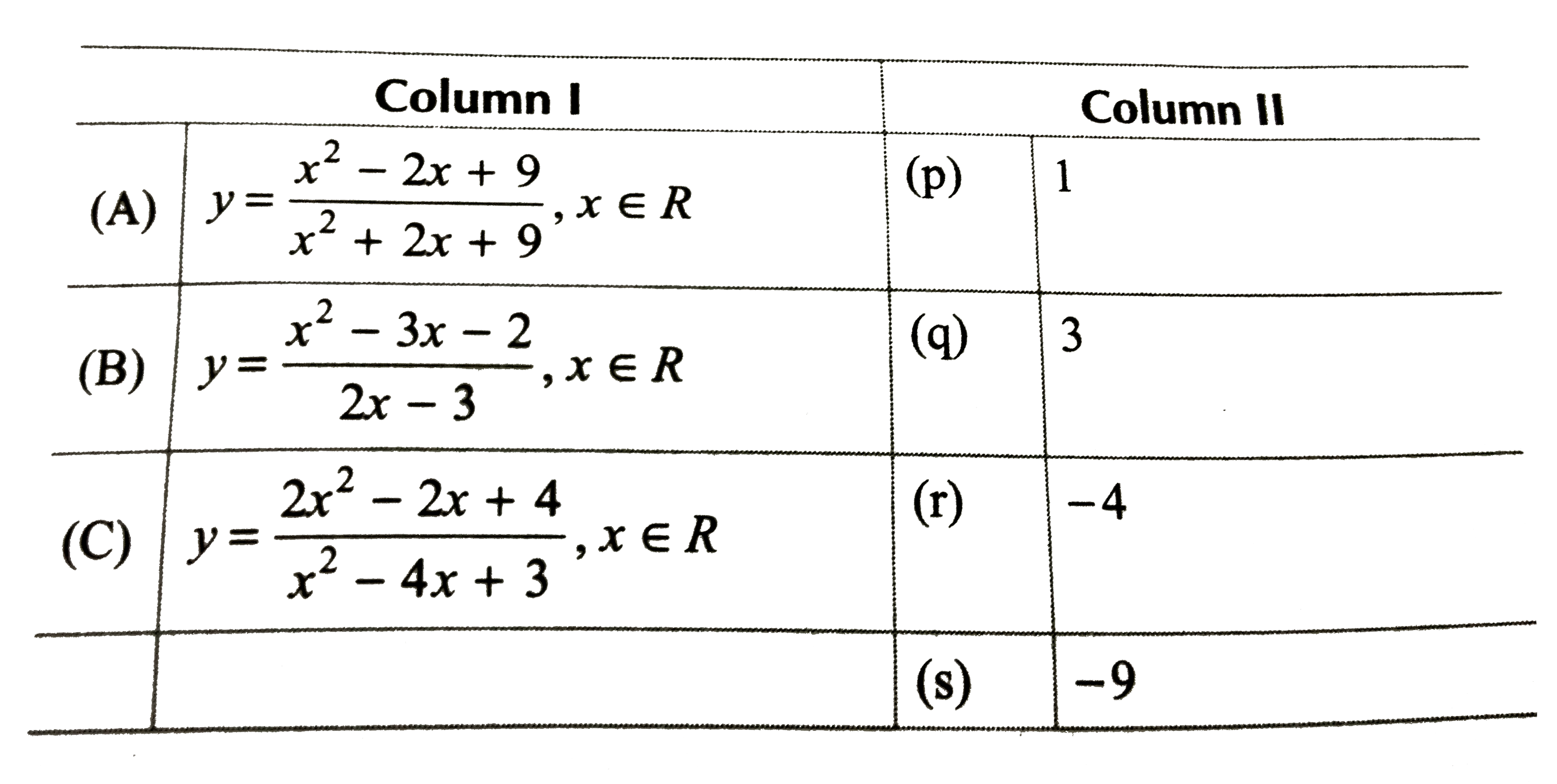If are the roots of the equation such that and A,B,C,D are the roots of such that The value of in terms of B and is Solution in Punjabi
The correct Answer is:A
……………..i
…………..ii
……iii
and ……iv
From Eq. (ii) we get
Topper's Solved these Questions
- THEORY OF EQUATIONSBOOK - ARIHANT MATHSCHAPTER - THEORY OF EQUATIONSEXERCISE - Exercise (Single Integer Answer Type Questions)
10 Videos
- THEORY OF EQUATIONSBOOK - ARIHANT MATHSCHAPTER - THEORY OF EQUATIONSEXERCISE - Exercise (Matching Type Questions)
2 Videos
- THEORY OF EQUATIONSBOOK - ARIHANT MATHSCHAPTER - THEORY OF EQUATIONSEXERCISE - Exercise (More Than One Correct Option Type Questions)
15 Videos
- THE STRAIGHT LINESBOOK - ARIHANT MATHSCHAPTER - THE STRAIGHT LINESEXERCISE - The Straight Lines Exercise 8 : (Questions Asked in Previous 13 years Exams)
1 Videos
- THREE DIMENSIONAL COORDINATE SYSTEMBOOK - ARIHANT MATHSCHAPTER - THREE DIMENSIONAL COORDINATE SYSTEMEXERCISE - Three Dimensional Coordinate System Exercise 12 : Question Asked in Previous Years Exam
2 Videos
Similar Questions
The sum of all the real roots of the equation |x−2|2+|x−2|−2=0 is
View SolutionColumn I contain rational algebraic expressions and ColumnII contains possible integers which lie in their range. Match the entries of Column I with one or more entries of the elements of Column II.

View SolutionIf 0<a<b<c and the roots α,β of the equation ax2+bx+c=0 are non-real complex numbers, then
View SolutionSolve the following system of inequalities graphically
x+5y≤25,2x+2y≥2,2x−2y≤0,x≥0,y≥0
View SolutionConsider the line L1:x−12=y−1=z+31,L2:x−41=y+31=z+32 find the angle between them.
View SolutionIf alpha,beta are the roots of x^(2)+ax-b=0 and gamma,delta are the roots of x^(2)+ax+b=0 then (alpha-gamma)(alpha-delta)(beta-gamma)(beta-delta)=
View SolutionIf alpha,beta,gamma,delta are the roots of the equatione roots of the equation x^(4)-2x^(3)+4x^(2)+6x-21=0, then is sum alpha beta
View Solutionif alpha,beta the roots x^(2)+x+2=0 and gamma,delta the roots of x^(2)+3x+4=0 then find the value of (alpha+gamma)(alpha+delta)(beta+gamma)(beta+delta)
View SolutionIf alpha,beta,gamma and delta are roots of equation x^(4)-7x^(2)+x-5=0, then the value of (alpha+beta+gamma)(alpha+beta+delta)(beta+gamma+delta)(alpha+gamma+delta) is equal to
View SolutionIf α,β,γ,δ are the roots of the equation x4+Ax3+Bx2+Cx+D=0 such that αβ=γδ=k and A,B,C,D are the roots of x4−2x3+4x2+6x−21=0 such that A+B=0
The correct statement is
View SolutionIf α,β,γandδ are the roots of the equation x4−bx−3=0, then an equation whose roots are α+β+γδ2,α+β+δγ2,α+δ+γβ2,andδ+β+γα2, is:
View SolutionIF α,β are the roots of ax2+bx+c=0 and γ,δ are the roots of lx2+mx+n=0 then the equation whose roots are αγ+βδ,αδ+βγ is
View SolutionGiven that α, γ are roots of the equation Ax2−4x+1=0 and β, δ are roots of the equation Bx2−6x+1=0. If α, β,γ and δ are in H.P., then
View SolutionIf α,β,γ are the roots of ax3+bx2+cx+d=0 and ∣∣ ∣ ∣∣αβγβγαγαβ∣∣ ∣ ∣∣=0,α≠β≠γ then find the equation whose roots are α+β−γ,β+γ−α, and γ+α−β.
View SolutionGiven that α, γ are roots of the equation Ax2−4x+1=0 and β, δ are roots of the equation Bx2−6x+1=0. If α, β,γ and δ are in H.P., then
View SolutionIf α,β be the roots of x2+x+2=0 and γ,δ be the roots of x2+3x+4=0 then (α+γ)(α+δ)(β+γ)(β+δ)=
View Solution
